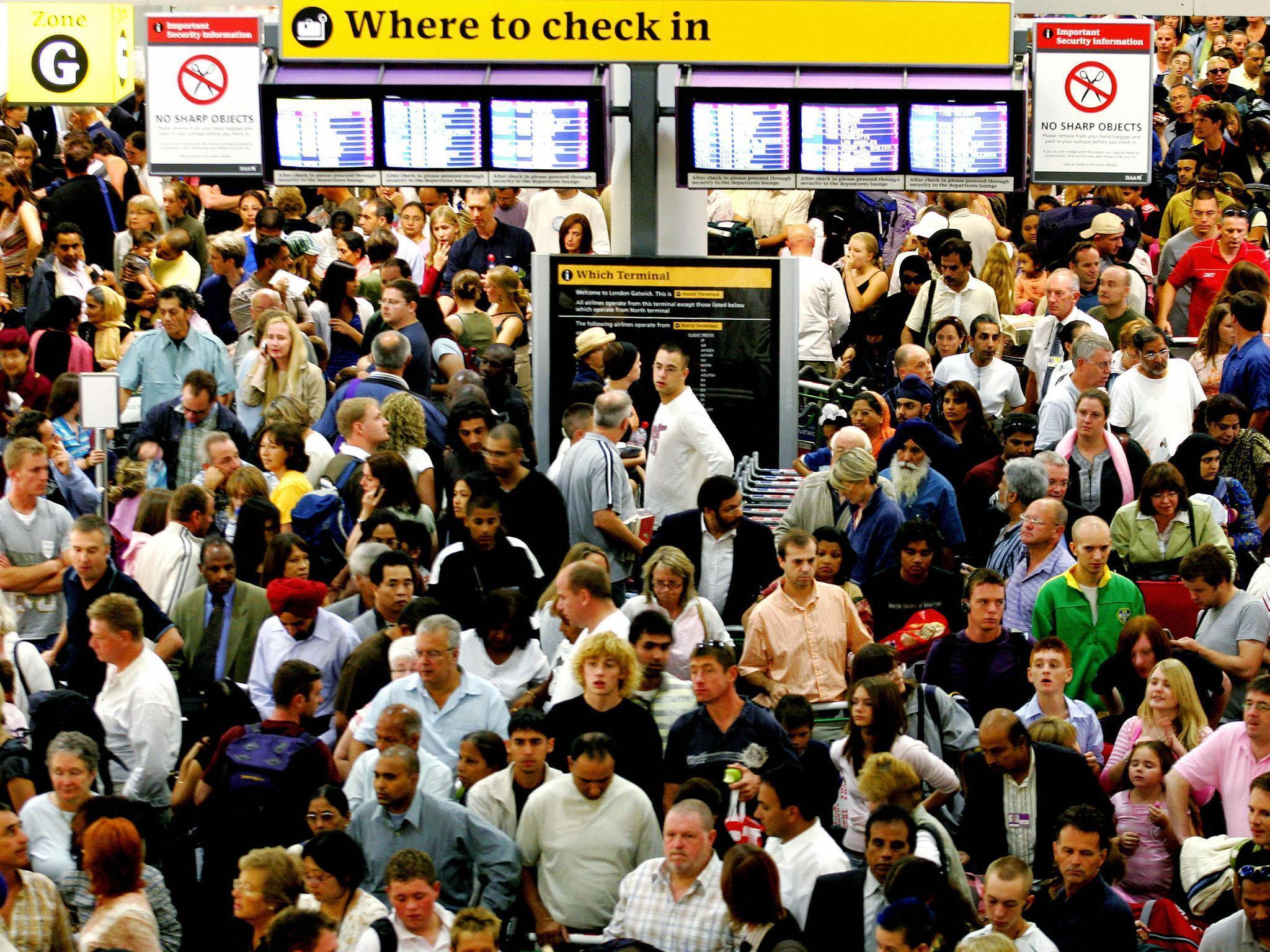Major UK airports slammed for not doing enough to help disabled passengers
Four of Britain’s biggest airports need to do more to improve accessibility, says Civil Aviation Authority

Your support helps us to tell the story
From reproductive rights to climate change to Big Tech, The Independent is on the ground when the story is developing. Whether it's investigating the financials of Elon Musk's pro-Trump PAC or producing our latest documentary, 'The A Word', which shines a light on the American women fighting for reproductive rights, we know how important it is to parse out the facts from the messaging.
At such a critical moment in US history, we need reporters on the ground. Your donation allows us to keep sending journalists to speak to both sides of the story.
The Independent is trusted by Americans across the entire political spectrum. And unlike many other quality news outlets, we choose not to lock Americans out of our reporting and analysis with paywalls. We believe quality journalism should be available to everyone, paid for by those who can afford it.
Your support makes all the difference.For a second year, Manchester Airport has been rated as “poor” in the help that it provides for disabled passengers.
The Civil Aviation Authority (CAA) has also said its sister airport, Stansted, has not met expectations and has been told it must improve – as have Gatwick and Birmingham.
But Britain’s biggest airport, Heathrow, has been classified as “good” following its “poor” rating in 2017.
Manchester Airport is criticised for “long waiting times for assistance”.
The CAA has a target of 20 minutes for assistance reaching disabled passengers on planes. But Paul Smith, the authority’s consumers and markets director, said some passengers at Manchester were having to wait over an hour, which he described as “simply not good enough”.
Assistance services are provided by private companies which are contracted by the airlines, independently of the airport.
A Manchester Airport spokesman said: “We acknowledge the findings of the CAA’s Accessibility Report and are committed to making further improvements to ensure we meet the required standards for passengers who require special assistance.
“As the report notes, our £1bn Manchester Airport Transformation Programme is a long term commitment to delivering significant improvements to the customer experience, many of which will be felt as early as April next year.”
A spokesperson for Stansted said: “The CAA, in its report last year, asked Stansted to focus on improving engagement and consultation with representatives of disability groups. This year we have established a dedicated Disability Forum which has fed directly into new ideas to improve the airport experience for passengers with disabilities.
“We recognise that we still have more work to do to make Stansted as accessible as possible, and we are committed to further improving on our record of service and engagement.”
A Gatwick spokesperson said: “While in some areas this result falls short of the service levels we expect, we remain confident that additional investment by Gatwick, supported by our airlines, in new equipment, IT systems, staff, training – and also a new service provider – will lead to significant improvements going forward.”
An spokesperson for Birmingham Airport said: ““We have invested heavily over the last six months to increase service provision, improve processes and create better PRM [Passengers with Reduced Mobility] facilities for our customers.
“We are committed to making further changes over the next year to continue our commitment to improving the airport experience for passengers requiring assistance.”
The CAA’s annual report on the accessibility services provided by the top 30 UK airports has rated 16 as “very good,” 10 more than last year. They include Edinburgh Airport, which was rated “poor” two years ago.
The report says there are more than three million requests for assistance at UK airports annually. The rate of increase in demand is around 10 per cent per year.
More than half the passengers surveyed say they are “very satisfied” with the service provided, with only one in six not satisfied with their treatment.
Aviation minister Baroness Sugg added: “It’s essential that passengers with reduced mobility or hidden disabilities get the service they deserve every time they fly.
“I welcome the progress made by airports to improve accessibility and will continue to work with all of the aviation industry to make flying easier for disabled passengers.”
In March this year, the BBC security correspondent, Frank Gardner, launched a furious attack on Heathrow Airport after his wheelchair went missing following a flight from Addis Ababa.
Join our commenting forum
Join thought-provoking conversations, follow other Independent readers and see their replies
Comments